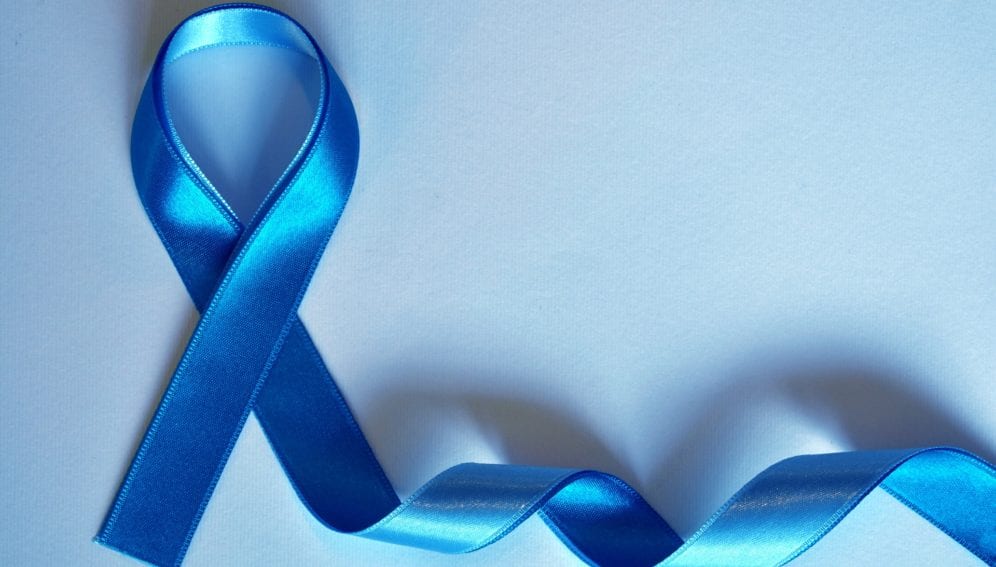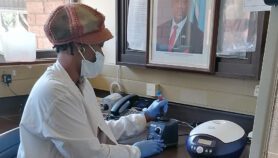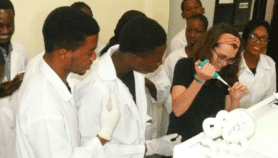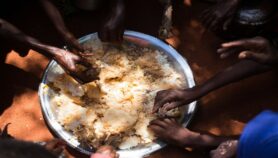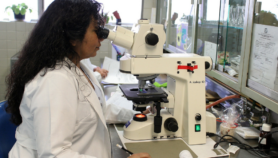By: Royal Uche
Send to a friend
The details you provide on this page will not be used to send unsolicited email, and will not be sold to a 3rd party. See privacy policy.
Folakemi Odedina was told she would never finish her studies when she got married and became pregnant in her first year at graduate school. But, she overcame doubt and discrimination to become an internationally recognised specialist in prostate cancer research.
Now a professor at the University of Florida in the United States, Odedina leads a global prostate cancer research programme, working with a consortium of scientists globally to understand and address prostate cancer in men of African descent.
Odedina, the founder and principal investigator at the Prostate Cancer Transatlantic Consortium, tells SciDev.Net how she is turning brain drain into “brain gain” for Sub-Saharan Africa.
Tell us about your academic and research career
I attended the University of Ife in Ile-Ife (Great Ife) where I received my first degree in Pharmacy. I obtained my doctorate in pharmaceutical sciences at the University of Florida College of Pharmacy, where I am now a professor.
“Women in research, especially biomedical research, face many obstacles and discrimination. I am proud to have overcome several challenges to develop a global prostate cancer research programme and am blessed with a loving family.”
Folakemi Odedina, University of Florida College of Pharmacy
I am the principal investigator and founding programme director of the Prostate Cancer Transatlantic Consortium, the research core director for the Florida Health Equity Research Institute and the chair of the Research Committee for the African Organisation for Research and Training in Cancer (AORTIC).
AORTIC is the premier organisation for cancer research and training in Africa. As the chair of the AORTIC research committee, I work with outstanding cancer scientists within and outside Africa to provide scientific leadership and direction for cancer research in Africa. Our committee is currently working on several goals including to develop a strong research agenda that will impact cancer outcomes in Africa.
The Global Oncology Clinical Trials Congress for blacks is very dear to my heart given the underrepresentation of the black population in clinical trials. The black population is disproportionately affected by cancer globally. I worked with several experts and institutions to organise the Global Congress on Oncology Clinical Trials among blacks.
The inaugural conference took place November 2018 in Lagos. The goals of the congress were to provide opportunities for mutual learning; knowledge transfer; and collaborations among oncology clinical trial scientists, clinicians, sponsors, pharmaceutical industries, and government agencies. It also aimed to promote transdisciplinary and multidisciplinary approaches for oncology clinical trials among black populations and develop a comprehensive strategic plan for oncology clinical trials in black populations.
What major challenges did you face in your career as a female scientist?
I faced a lot of challenges before getting to where I am today. In Nigeria, while I was at the University of Ife, one of the things that I (and so many women) had to deal with was the sexual predators.
In the United States, what I have experienced as a woman is gender discrimination. It is coincidental that the earliest recollection of gender discrimination that I experienced was made by a female professor when I was in graduate school. The female professor told me that I would not be able to finish my graduate programme because I got married and was pregnant in my first year of graduate school.
My ammunition for overcoming this discrimination is hard work and undeniable productivity and output. You don’t have to strive to be liked but always strive to be respected for your work.
I see the work that I do as a calling – the scientific discoveries that we achieve impact lives and that gives me the strength to wake up the next morning and keep going.
What is your view on women in science?
Women in research, especially biomedical research, face many obstacles and discrimination. Earlier in my career, the perception was that a woman had to choose between having a family and a career. I am proud to have overcome several challenges to develop a global prostate cancer research programme and am blessed with a loving family.
What are some of your achievements as a scholar?
As far back as 2009, my leadership in health disparities research was recognised by the American Society of Health-System Pharmacists and the Association of Black Health-System Pharmacists with the inaugural leadership award for health disparities. I was selected by the US Congressionally Directed Medical Research Programs to give the inaugural Barbara Terry-Koroma Health Disparity Legacy Lecture in 2013.
“In Nigeria, while I was at the University of Ife, one of the things that I (and so many women) had to deal with was the sexual predators.”
Folakemi Odedina, University of Florida College of Pharmacy
INSIGHT into Diversity, an online and print publication in the United States, gave me the Inspiring Women in STEM Award in 2016 in recognition of my effort in training underrepresented minorities for over two decades.
In 2017, it was rewarding to receive the Carnegie African Diaspora Fellowship, which allowed me to work on prostate cancer risk among men with institutions in Nigeria, including the University of Ilorin, and Covenant University.
As a Carnegie African Diaspora fellow in 2018, I worked with Lynette Denny, a professor at the University of Cape Town, to develop a virtual oncology clinical trials platform to enhance access to clinical trials in Africa. One of the achievements of this collaboration was the implementation of a webinar series that focused on clinical trials research training for African investigators and clinicians on clinical trials.
We have completed the beta test of the virtual platform, which includes a total of 109 open oncology clinical trials in Africa.
How are you further impacting Africa?
I have trained or mentored more than 300 scientists from several African countries including Cameroon, Ghana, Kenya, Nigeria and South Africa.
One of my most current initiatives is a partnership with the National Universities Commission in Nigeria to develop the Nigeria-Diaspora Biomedical Research Programme. We held our inaugural Nigeria-Diaspora Biomedical Research Summit virtually in July.
What is your advice to young scientists in Africa?
Young scientists should choose an area of research that they are passionate about. They should find a good mentor or a team of mentors who are interested in advancing them and work hard.
They should define themselves and not let anyone define them. They should also have faith in the God they believe in.
Q&As are edited for length and clarity.
This piece was produced by SciDev.Net’s Sub-Saharan Africa English desk.


